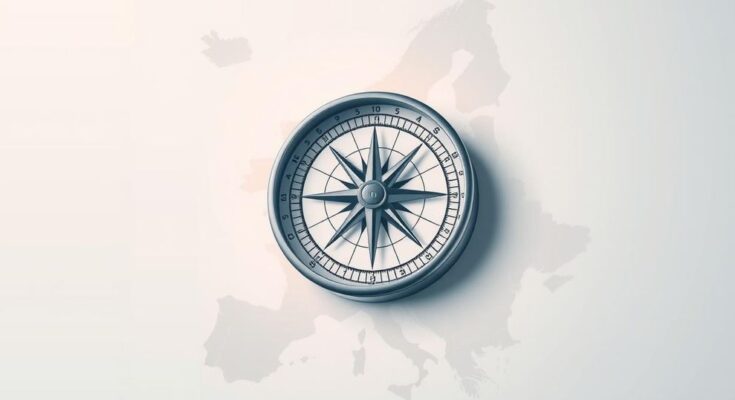At the 2025 Davos summit, European Commission President Ursula von der Leyen unveiled a pivotal initiative called the Competitiveness Compass. This roadmap, inspired by economist Mario Draghi’s recommendations, aims to amplify the EU’s position amid global challenges. Focusing on innovation, decarbonization, and security, it seeks to ensure growth opportunities for all Europeans. “Europe is open for business,” declared von der Leyen, responding to transformative global trade landscapes.
Innovation at the Forefront
According to von der Leyen, the Competitiveness Compass will close the innovation gap through significant investments in key technological sectors such as artificial intelligence (AI), biotechnology, and space technology. The initiative includes an EU Start-up and Scale-up Strategy aimed at nurturing emerging businesses to thrive across the continent.
Decarbonization for Competitiveness
Decarbonization remains crucial, as emphasized by von der Leyen’s commitment to achieving low energy prices. The Affordable Energy Action Plan will focus on energy-intensive sectors, linking competitiveness with the forthcoming Clean Industrial Deal. The goal is to create both a sustainable and competitive energy landscape within Europe.
Strengthening Security and Resilience
With changing global dynamics, von der Leyen noted Europe’s historical reliance on global trade for growth must evolve. The EU aims to reduce dependencies, particularly on Russian fossil fuels, while establishing new partnerships for resources and clean energy. Collaborative agreements are being pursued with countries like Switzerland, Mercosur, and Mexico to bolster resilience.
Key Actions to Boost Competitiveness
To realize its objectives, the Competitiveness Compass outlines five decisive actions. First, the Commission plans to reduce bureaucratic hurdles for small and medium-sized enterprises (SMEs), acknowledging that excessive regulations hinder investment. Simplifying processes is a priority to foster business growth.
Lowering barriers to the Single Market is next, where von der Leyen proposes a unified legislative framework termed the ‘28th regime’, streamlining taxation, labor, and corporate laws into a coherent system. Furthermore, enhancing access to capital markets is essential, evidenced by European families investing over $312 billion abroad each year.
Skills and Policy Coordination
Promoting skill development is critical as the EU faces labor shortages, with initiatives to retain talent and foster job creation. To facilitate better policy alignment between EU and national frameworks, a new Competitiveness Coordination Tool will be introduced, allowing for smoother execution of strategies.
Balancing Progress with Sustainability
Despite advancements in renewable energy, von der Leyen acknowledges the difficulty of balancing technological progress with sustainability. Investments in next-generation clean energy technologies are essential to meet climate targets. She asserted that “defensive trade measures” must not compromise constructive international cooperation, emphasizing the necessity to adapt in a changing world.
At Davos 2025, Ursula von der Leyen introduced the EU’s Competitiveness Compass to enhance Europe’s global competitiveness by focusing on innovation, decarbonization, and security. Key actions include reducing bureaucratic barriers, lowering Single Market hurdles, and promoting skill development. The initiative embodies a strategic shift to foster economic growth while ensuring sustainable practices.
The EU’s Competitiveness Compass represents a strategic approach to enhancing Europe’s global standing through innovation, decarbonization, and security enhancement. By reducing bureaucratic barriers, fostering skills, and improving market access, the initiative aims to benefit all Europeans while adapting to the evolving global landscape. Underlining Europe’s openness to business, von der Leyen’s vision reflects a commitment to not only compete but thrive sustainably.
Original Source: www.weforum.org



